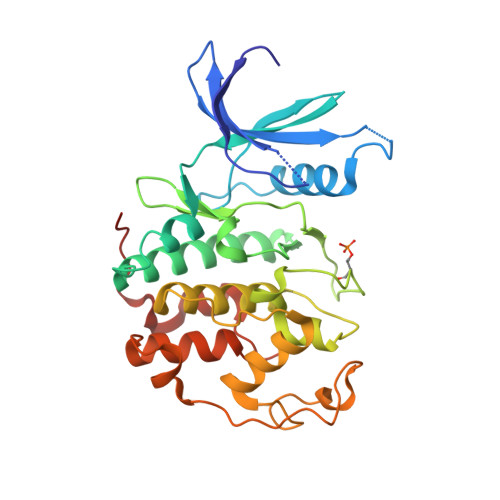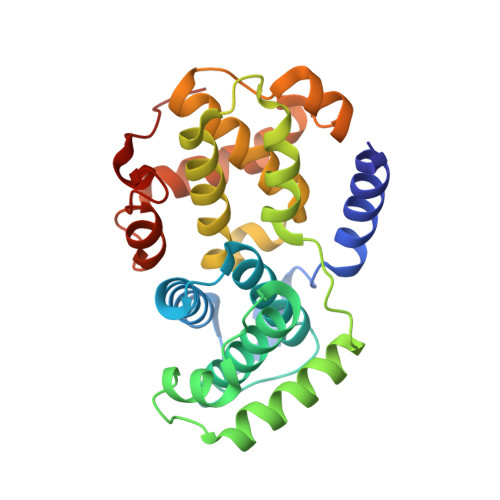3 H -Pyrazolo[4,3- f ]quinoline-Based Kinase Inhibitors Inhibit the Proliferation of Acute Myeloid Leukemia Cells In Vivo.
Dayal, N., Reznickova, E., Hernandez, D.E., Perina, M., Torregrosa-Allen, S., Elzey, B.D., Skerlova, J., Ajani, H., Djukic, S., Vojackova, V., Lepsik, M., Rezacova, P., Krystof, V., Jorda, R., Sintim, H.O.(2021) J Med Chem 64: 10981-10996
- PubMed: 34288692
- DOI: https://doi.org/10.1021/acs.jmedchem.1c00330
- Primary Citation of Related Structures:
7B7S - PubMed Abstract:
The 3 H -pyrazolo[4,3- f ]quinoline moiety has been recently shown to be a privileged kinase inhibitor core with potent activities against acute myeloid leukemia (AML) cell lines in vitro. Herein, various 3 H -pyrazolo[4,3- f ]quinoline-containing compounds were rapidly assembled via the Doebner-Povarov multicomponent reaction from the readily available 5-aminoindazole, ketones, and heteroaromatic aldehydes in good yields. The most active compounds potently inhibit the recombinant FLT3 kinase and its mutant forms with nanomolar IC 50 values. Docking studies with the FLT3 kinase showed a type I binding mode, where the 3 H -pyrazolo group interacts with Cys694 in the hinge region. The compounds blocked the proliferation of AML cell lines harboring oncogenic FLT3-ITD mutations with remarkable IC 50 values, which were comparable to the approved FLT3 inhibitor quizartinib. The compounds also inhibited the growth of leukemia in a mouse-disseminated AML model, and hence, the novel 3 H -pyrazolo[4,3- f ]quinoline-containing kinase inhibitors are potential lead compounds to develop into anticancer agents, especially for kinase-driven cancers.
Organizational Affiliation:
Department of Chemistry, Purdue University, West Lafayette, Indiana 47907, United States.




















